Southern Ground Hornbill Project: Survival of the fittest
on Jul 22, 2019It has been some time since any news regarding the Southern Ground Hornbill project. It has been a bit of a bitter-sweet experience since our last blog post. We have received some bad news regarding the Southern Ground Hornbill chick left in the nest on the Reserve. Unfortunately, the chick did not survive. Sabi Sabi guides have reported seeing the family of Southern Ground Hornbills nesting in a new location some distance from the previous nest site. We immediately reported this information to the Sabi Sand Wildtuin. Upon further investigation by the Sabi Sand Wildtuin, it became evident that the nest was abandoned. We were notified that the nest was no longer in use and that the Southern Ground Hornbill chick did not survive.
As previously mentioned in our prior blog post, it was always going to be a touch and go situation. The survival rate for Southern Ground Hornbill chicks out in the wild are extremely low and only a lucky few will reach maturity. However, it’s not all bad news; on the sweeter side of things. The chick at the Mabula Ground Hornbill center is thriving! We received news that the youngster is doing incredibly well and is growing rapidly and progressing as was expected.
The youngster has even reached graduation age and has progressed on to what is referred to as “bush training”. Through this “bush training” young birds are taught how to forage for themselves. This will afford the young bird he opportunity to be released into the wild to join a “new family” of Southern Ground Hornbills. The youngster will be fully capable of fending for itself upon release.
The projects work will ensure a safe re-introduction into areas where these birds have since been locally extinct. This will take place only once the original threats that lead to initial extinction have been mitigated. Their hard work and diligence have ensured the survival and re-wilding of many family groups in areas where they have not been seen for some time.
A huge shout out and big thank you to all the hard-working individuals at the Mabula Ground Hornbill Centre. Thank you for your dedication and devotion in ensuring the survival of this species through your hard work. Having been actively involved in following and documenting the progress of this youngster has opened our eyes to all that is being done to ensure the survival of this species. Thank you once again and good luck going forward.
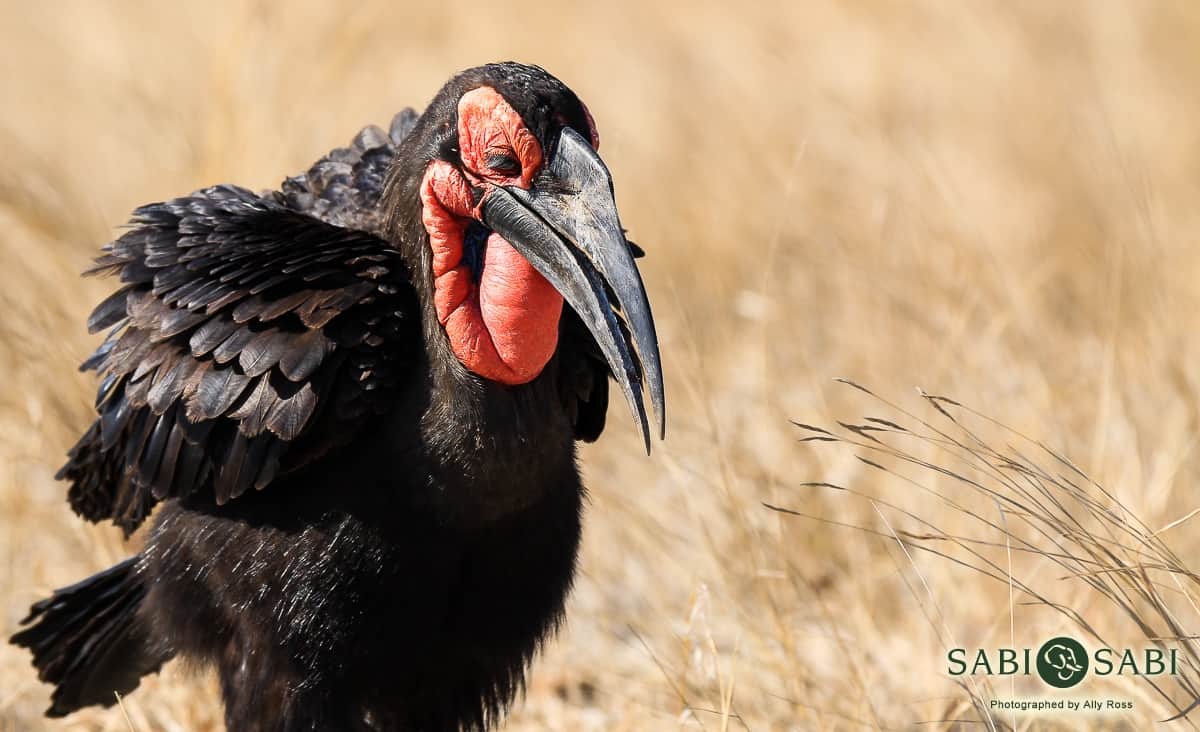
Challenges hornbills face
There are quite a few alarming reasons for the steady decline in Southern Ground Hornbill numbers:
- Habitat loss. This affects both qualities of foraging grounds as well as nesting sites. Exploitation of trees leads to the reduction of nesting sites. Over-utilisation of savanna leading to loss of ground cover and/or woody bush encroachment leads to the loss of quality foraging for the Hornbills.
- Conservation of key tree species such as the Leadwood, Marula and the mighty Baobab will ensure that their nesting sites will be safe. Hornbills need thick sturdy trees as their nests have a diameter of at least 40cm.
- Traditional use is also a huge factor against the Southern Ground Hornbill. Known as the “rain” or “thunder” bird, they are hunted and used in times of drought.
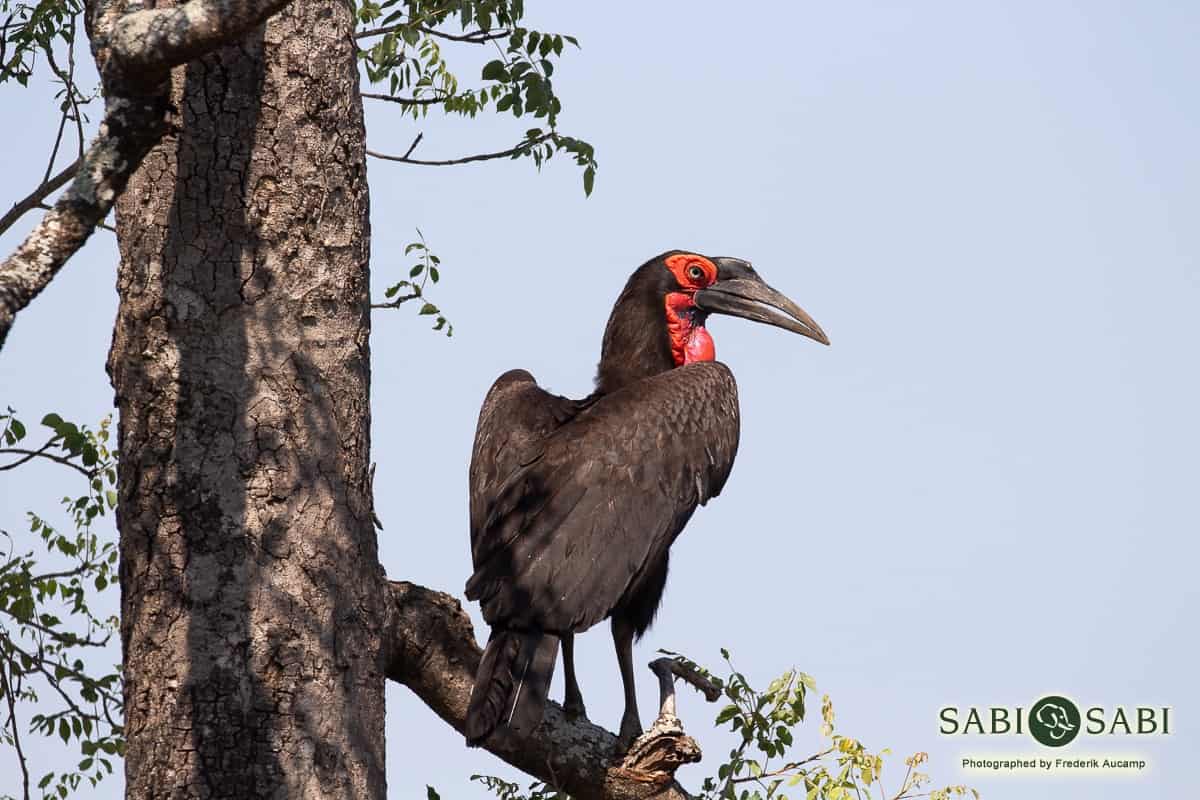
Although these bird’s numbers are declining at a rapid rate outside protected areas due to human interference, we here at Sabi Sabi are incredibly lucky to witness these birds live and thrive within their natural habitat.
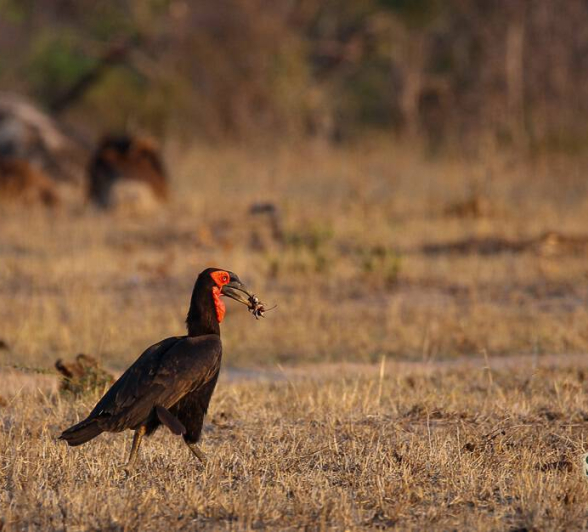
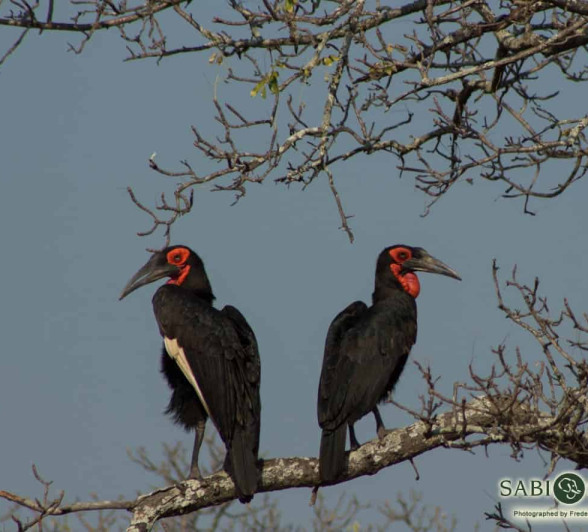
Lately we were blessed by the arrival of two new family groups that now call Sabi Sabi home. The one group has settled within the Eastern side of the reserve whilst the other group has settled for the Southern section of our reserve.
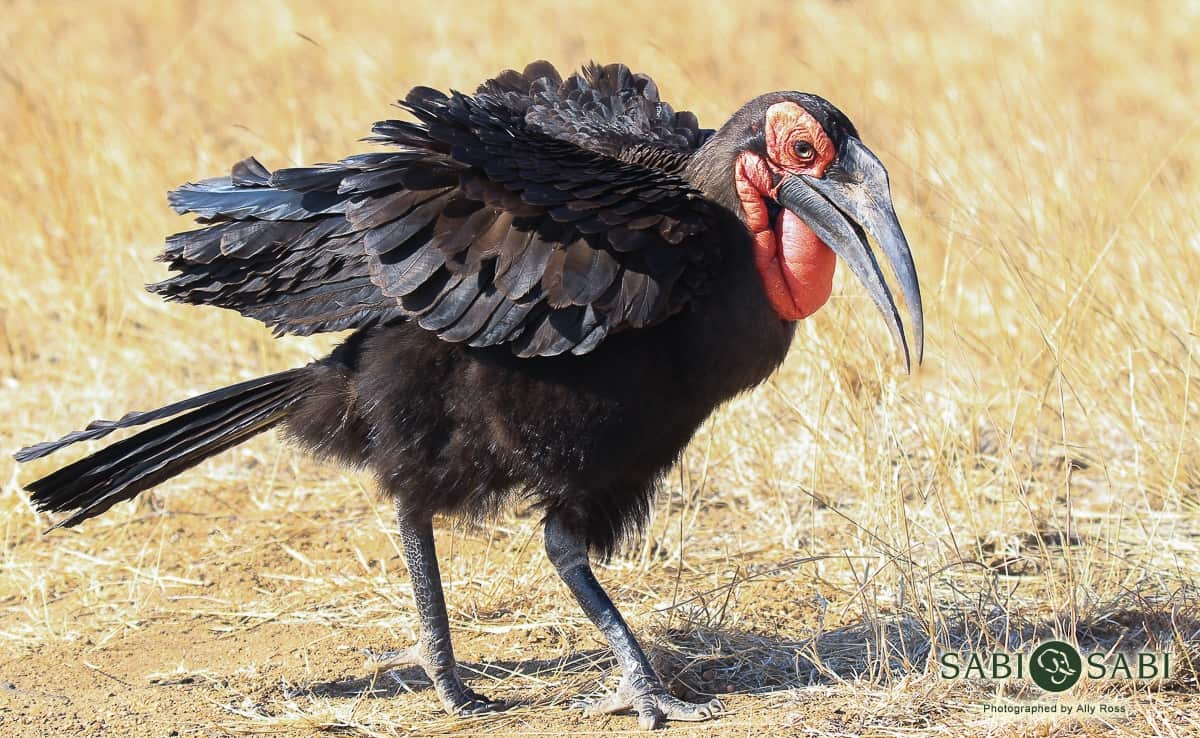
Should you be lucky enough to spot these magnificent birds whilst out on safari at Sabi Sabi, enjoy and appreciate the moment.... Remember how unique and vulnerable these birds are and how lucky you are to see them roam freely within their natural environment. Whilst appreciating all of this, remember to spare a thought for all those hard-working individuals out there ensuring their survival and making your experience possible.






